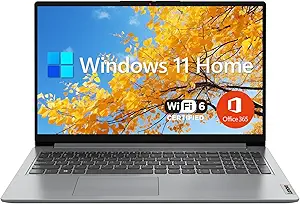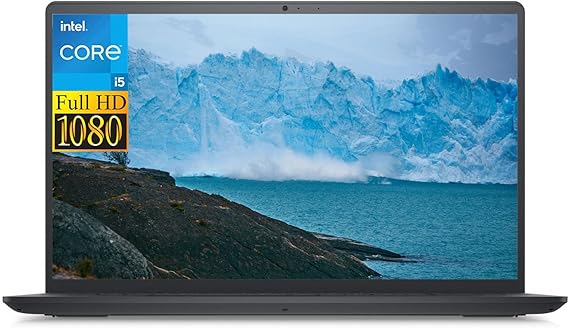In the bustling arena of laptop technology, two formidable contenders stand poised for supremacy: Dell and Lenovo. With their rich heritage of innovation, reliability, and performance, these industry stalwarts have earned the trust of users worldwide. As we embark on this journey of comparison, we delve into the realms of Dell and Lenovo laptops, unraveling the distinctive features and strengths that set them apart. Join us as we explore which brand emerges victorious in this epic clash of titans.
Key Features Comparison
Product Selection
Lenovo and Dell are two of the leading brands in the laptop market, each offering a wide range of products to cater to different user needs. Lenovo laptops are known for their innovative designs, robust performance, and advanced technologies. They offer a diverse product selection, from the high-performance ThinkPad series, ideal for business and professional use, to the Yoga series that caters to creative professionals with its flexible design and high-resolution displays. Lenovo also offers the Legion series for gaming enthusiasts, featuring powerful processors, high-end graphics, and rapid refresh rates. On the other hand, Dell's product selection is equally impressive and diverse. Their XPS series is highly regarded for its superior build quality, stunning displays, and powerful performance, making it a popular choice among professionals. For budget-conscious consumers, the Inspiron series offers a balance of performance and affordability. Dell's Alienware series is a top choice for gamers, boasting high-performance graphics, fast refresh rates, and customizable RGB lighting. Both Lenovo and Dell continually update their product lines with the latest technologies, ensuring their laptops stay competitive. However, it's worth noting that while Lenovo laptops are often praised for their innovative features and value for money, Dell laptops are frequently recognized for their build quality and reliable customer service.
Affordability
Lenovo laptops and Dell laptops are two prominent brands in the market, each with their own pricing strategies, reflecting their respective technology and features. Lenovo laptops are generally priced competitively, offering a wide range of options for different budgets. They have entry-level laptops like the Lenovo IdeaPad series, which are quite affordable and suitable for basic tasks. On the other hand, their high-end models like the Lenovo ThinkPad X1 Carbon, equipped with the latest technologies like 11th Gen Intel Core processors and 4K display, are priced higher, but still often less than comparable models from other brands. Dell laptops, conversely, tend to be priced slightly higher, but they are often seen as a worthwhile investment due to their durable build quality, advanced features, and excellent customer support. Dell's budget offerings like the Dell Inspiron series offer decent performance for their price. However, their premium models like the Dell XPS series or Alienware series for gaming are priced at a premium, reflecting their high-end specifications such as the latest Intel Core i7 or i9 processors, high-resolution displays, and powerful graphics cards. While Dell laptops might be more expensive, they often compete closely with brands like Apple and HP in terms of their premium offerings.
Reputation
Lenovo and Dell are both reputable brands in the laptop market, each having its own strengths and weaknesses. Lenovo is known for its innovative designs and reliable hardware. Its ThinkPad line, in particular, has a strong reputation for durability and performance, making it a favorite among business users. Lenovo's Yoga series, on the other hand, is praised for its flexibility and high-quality touchscreens. However, some users have reported issues with customer service and warranty support from Lenovo, which could potentially tarnish its reputation. Dell, on the other hand, has a solid reputation for producing high-quality, reliable laptops across a range of price points. Its XPS line is particularly well-regarded, known for its excellent build quality, high-end specs, and sleek design. Dell's Alienware brand is also a popular choice among gamers for its powerful performance and striking aesthetics. Dell's customer service is generally considered to be superior to Lenovo's, with a more straightforward warranty process. However, Dell laptops tend to be more expensive than comparable Lenovo models, which could be a disadvantage for budget-conscious consumers. Both brands have a strong presence in the market, but individual preferences and specific needs will ultimately determine which is the better choice.
Battery Life
Lenovo and Dell are two of the most popular laptop brands and both have made significant advancements in terms of battery life. Lenovo laptops, particularly the ThinkPad X1 Carbon and Yoga series, are known for their impressive battery life. The ThinkPad X1 Carbon can last up to 15.5 hours on a single charge, while the Yoga series can last up to 9 hours. This long battery life is due to Lenovo's use of the latest battery technologies and energy-efficient processors. However, the battery life can vary depending on the model and the type of tasks performed on the laptop. On the other hand, Dell laptops, especially the XPS and Inspiron series, also offer commendable battery life. The Dell XPS 13, for instance, boasts a battery life of up to 12 hours, while the Inspiron series can last up to 8 hours on a single charge. Dell's long battery life can be attributed to its use of the latest Intel processors and its unique battery-saving features. However, similar to Lenovo, the battery life of Dell laptops can also vary depending on the model and usage. When compared to other brands, both Lenovo and Dell offer competitive battery life, making them a good choice for users who need a laptop with long-lasting power.
Display
Lenovo and Dell laptops both offer a range of display options, catering to different user needs and preferences. Lenovo laptops, such as the Lenovo ThinkPad X1 Carbon, come with a 14-inch display with 4K resolution, providing a vibrant and sharp image quality. The display also offers excellent brightness and impressive color accuracy, making it suitable for graphic designers and video editors. However, the 4K display can consume more battery life compared to lower resolution displays. On the other hand, Dell laptops like the Dell XPS 15 are equipped with a 15.6-inch 4K UHD display. The larger screen size can provide a more immersive viewing experience, especially for multimedia consumption. Dell's display technology also includes Dolby Vision, which enhances the color depth and contrast. However, the glossy screen can be reflective, which might be distracting in brightly lit environments. Compared to Lenovo, Dell offers OLED display technology in some of its models, providing deeper blacks and better contrast ratio. Both brands offer high-quality displays, but the choice between them would depend on the specific user requirements like screen size, resolution, and battery consumption.
Conclusion
In the battle of Dell vs. Lenovo laptops, both brands offer compelling options tailored to different preferences and priorities. Dell excels in durability, reliability, and performance, making it the ideal choice for professionals and business users who demand the utmost in productivity. Lenovo, on the other hand, shines in versatility, affordability, and innovation, appealing to users who value flexibility and value for money. Ultimately, the choice between Dell and Lenovo laptops depends on individual preferences, whether it's a preference for reliability and performance or versatility and affordability. Whichever path you choose, both Dell and Lenovo continue to push the boundaries of laptop technology, driving innovation and inspiring users worldwide. So, whether you're team Dell or team Lenovo, rest assured that the future of laptop computing is in capable hands, thanks to these two industry giants.


















